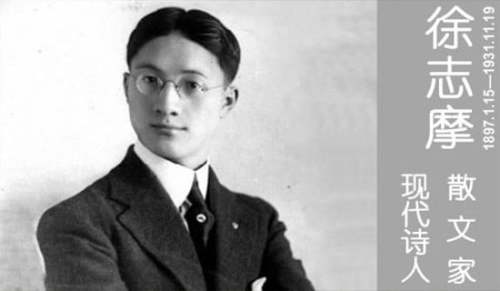- 相關(guān)推薦
英詩(shī)賞析羅賽蒂《歌》徐志摩譯羅大佑曲
克里斯蒂娜·羅賽蒂(Christina Rossetti)是19世紀英國著(zhù)名女詩(shī)人。她的名作《歌》(Song)發(fā)表在詩(shī)集Goblin Market and other Poems里。我國詩(shī)人徐志摩將它譯成中文后,羅大佑根據徐志摩的譯文譜曲,也就是視頻中縱貫線(xiàn)樂(lè )隊演唱的《歌》。

When I am dead, my dearest,當我死了的時(shí)候,親愛(ài)的 Sing no sad songs for me;別為我唱悲傷的歌Plant thou no roses at my head,我墳上不必安插薔薇Nor shady cypress tree:也無(wú)需濃蔭的柏樹(shù)Be the green grass above me讓蓋著(zhù)我的青青的草With showers and dewdrops wet;霖著(zhù)雨,也沾著(zhù)露珠And if thou wilt, remember,假如你愿意,請記著(zhù)我And if thou wilt, forget.要是你甘心,忘了我
I shall not see the shadows,我再不見(jiàn)地面的青蔭I shall not feel the rain;覺(jué)不到雨露的甜蜜I shall not hear the nightingale再聽(tīng)不到夜鶯的歌喉Sing on, as if in pain;在黑夜里傾吐悲啼And dreaming through the twilight在悠久的昏暮中迷惘That doth not rise nor set,陽(yáng)光不升起也不消翳Haply I may remember,我也許,也許我記得你And haply may forget.我也許,我也許忘記
這首詩(shī)中,羅賽蒂使用了一些舊式英語(yǔ)和詩(shī)歌英語(yǔ)中的特殊用法:
1. thou/a?/ = you 就像現代漢語(yǔ)用“你”代替“汝”一樣,thou在現代英語(yǔ)中已極其罕見(jiàn)。舊式英語(yǔ)中,你作主語(yǔ)時(shí)用thou,作賓語(yǔ)時(shí)用thee,你們作主語(yǔ)和賓語(yǔ)時(shí)都用you。到了今天,這四種用法已經(jīng)全部用you。
2. wilt/w?lt/ = will 現代英語(yǔ)中,wilt的意思是枯萎。但在古代,當主語(yǔ)是第二人稱(chēng)單數,也就是thou時(shí),現代英語(yǔ)的you will 寫(xiě)作thou wilt。
3. doth = does 現代漢語(yǔ)中,第三人稱(chēng)單數要用does,在古代,人們用doth。
4. haply = perhaps
【英詩(shī)賞析羅賽蒂《歌》徐志摩譯羅大佑曲】相關(guān)文章:
徐志摩的詩(shī)賞析10-27
徐志摩詩(shī)《云游》賞析01-21
徐志摩《殘詩(shī)》賞析10-14
《生活》徐志摩詩(shī)賞析06-07
徐志摩的詩(shī)《偶然》賞析10-10
徐志摩詩(shī)《云游》賞析11-11
徐志摩詩(shī)十二首賞析07-09
徐志摩《海韻》全詩(shī)賞析10-10
偶然徐志摩現代詩(shī)的原文與賞析10-10
徐志摩的詩(shī)10-22